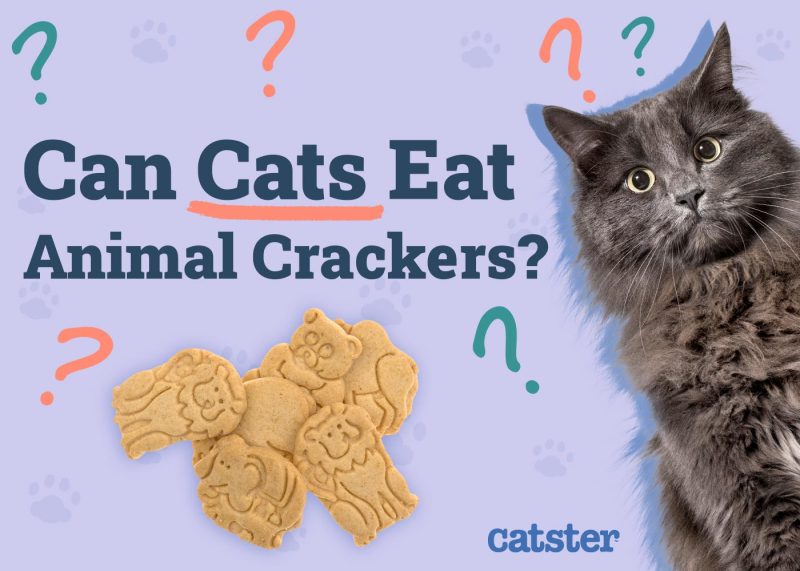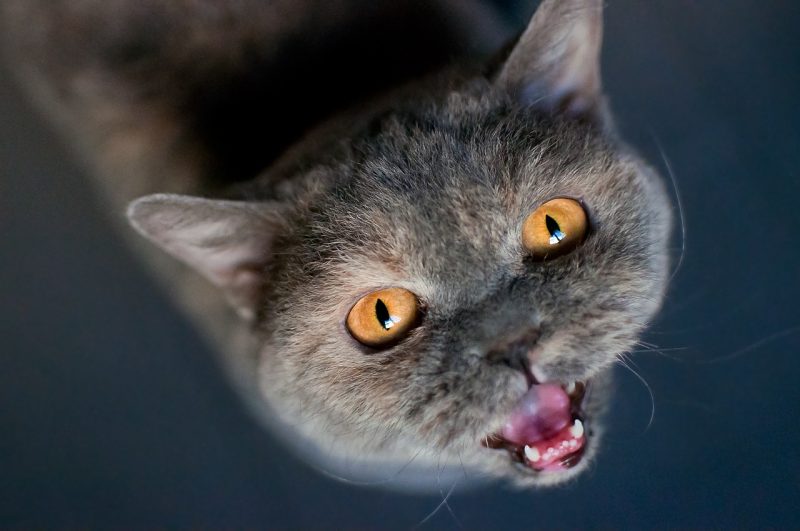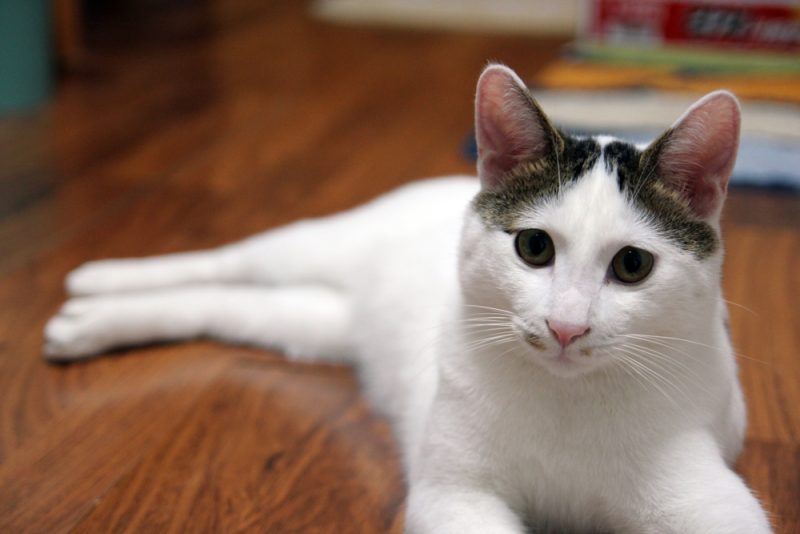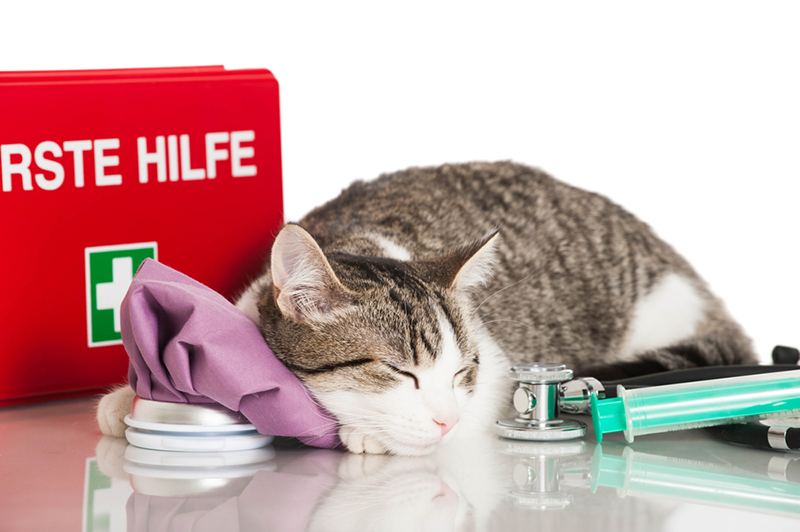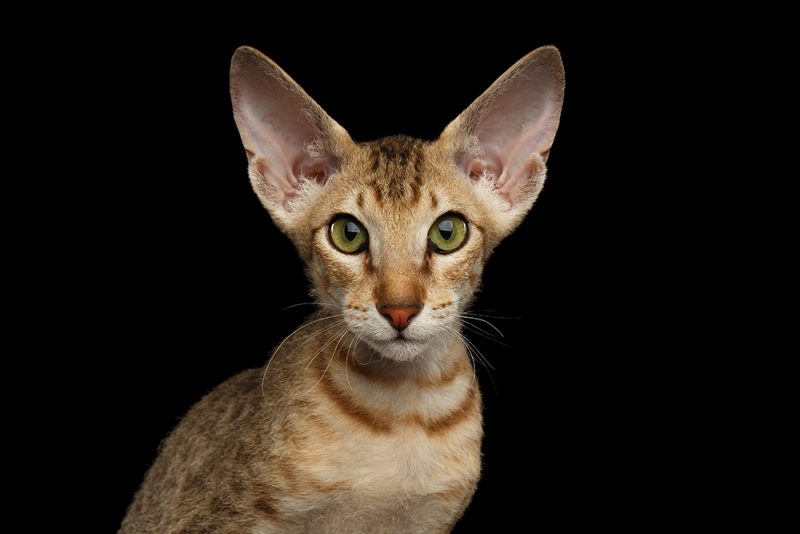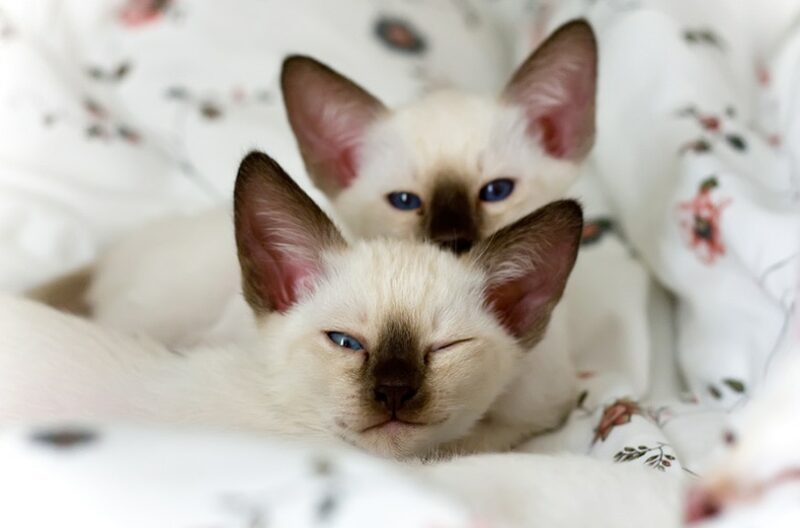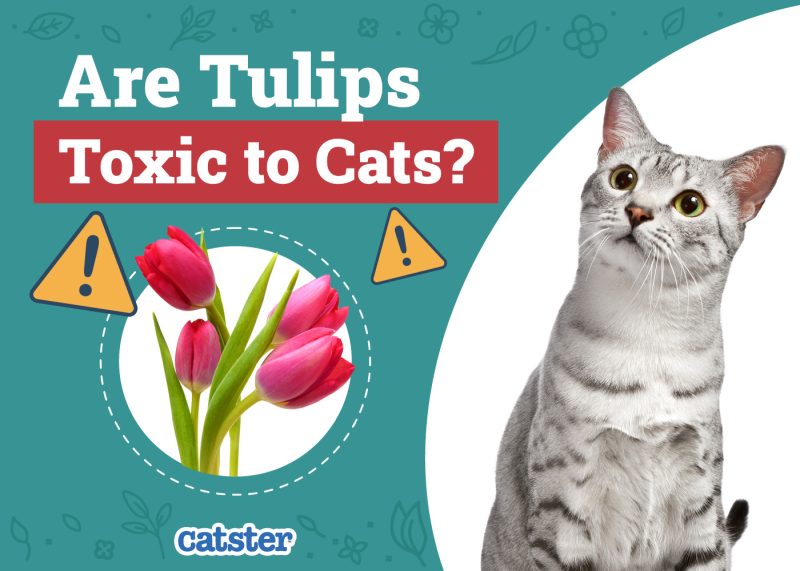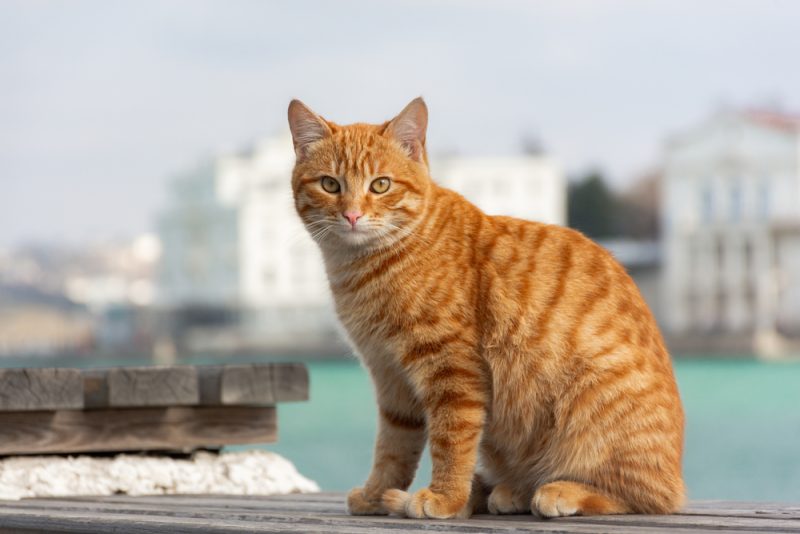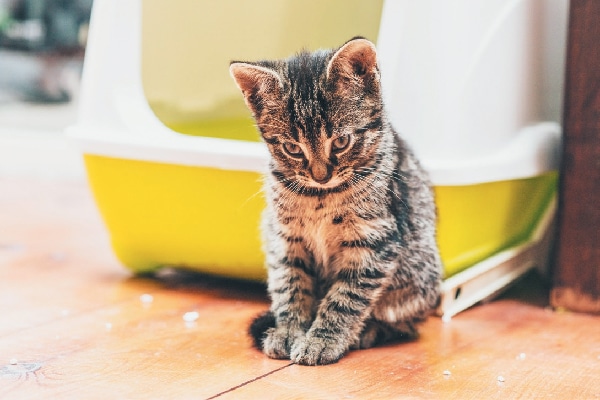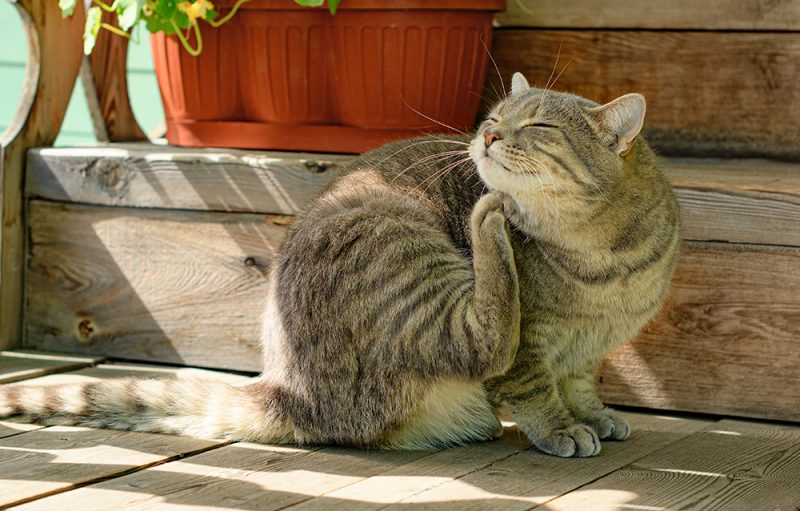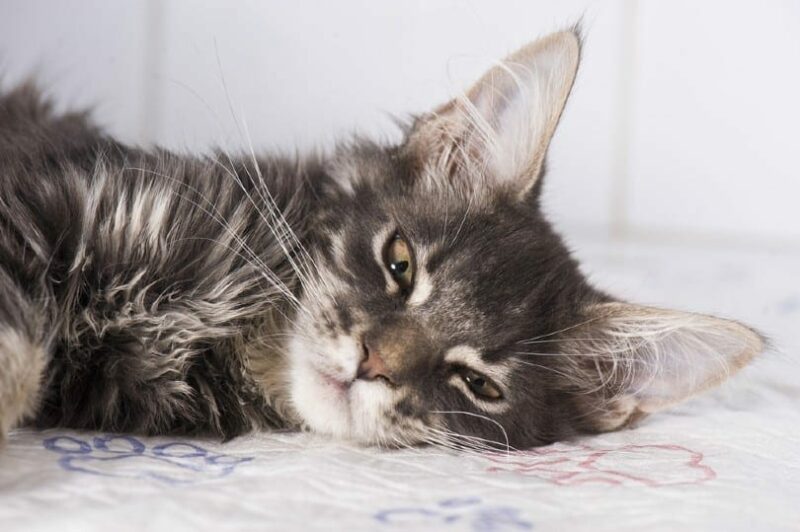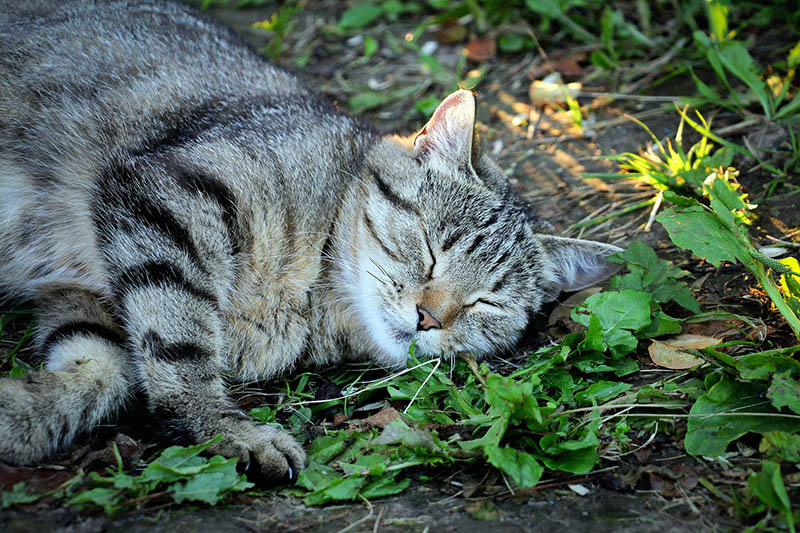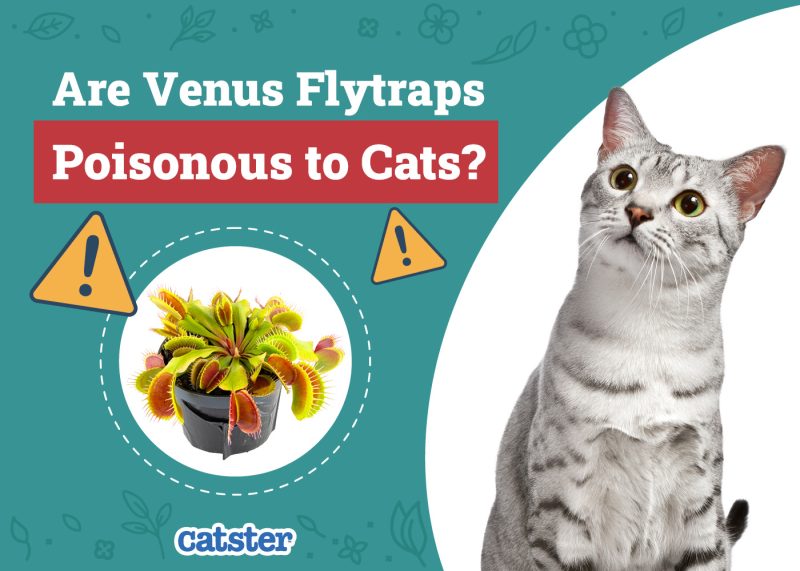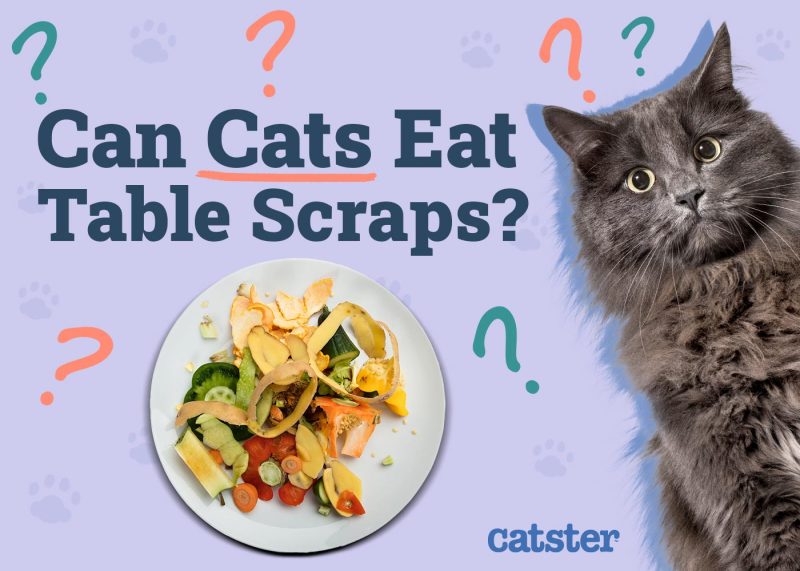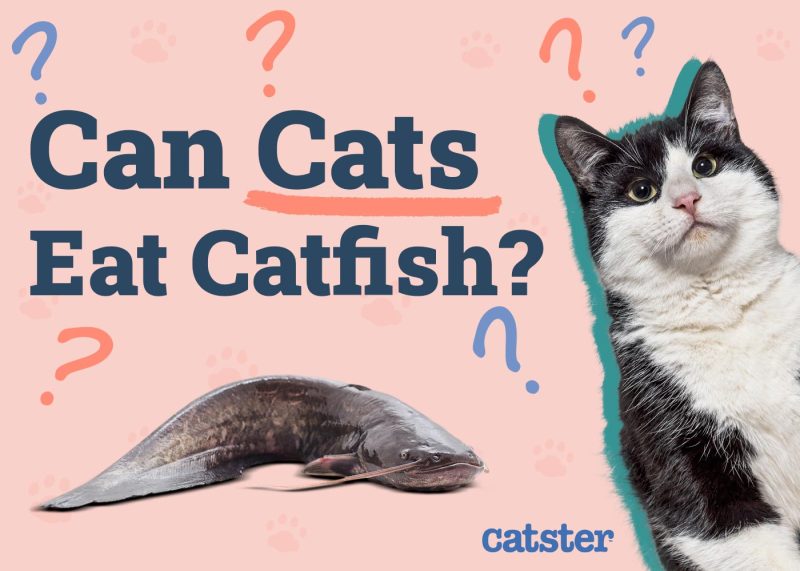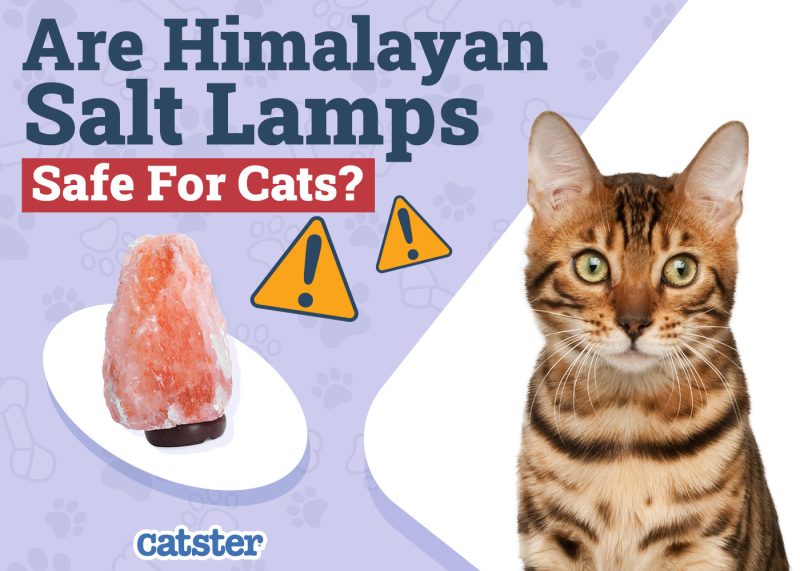In this article
View 2 More +Picture the scene: You’ve stolen a few minutes to enjoy some animal crackers, and your cat comes over, settles at your feet, and gives you the “eyes” or a swipe at your hand if you’ve got a feisty feline. We all know what it means—your cat likes the look of your afternoon snack and wishes to partake. The ensuing dilemma: Can you give them just one?
If your cat accidentally eats an animal cracker, this is unlikely to cause any harm, but cats shouldn’t be fed animal crackers on purpose simply because they’re not a healthy choice of treat. Read on to find out more.

Are Animal Crackers Toxic to Cats?
Animal crackers contain salt and baking soda, both of which can cause issues for cats if they eat enough of these ingredients. Though a cat isn’t likely to eat many animal crackers, it’s still important to be aware of this. In addition, animal crackers are made with corn syrup and sugar, so they’re simply too high in sugar to be healthy for cats to consume.
It’s also possible that, if your cat eats too many animal crackers, they could end up with a stomach upset because this is not the kind of food cats are supposed to eat (more on this below). For these reasons, we don’t recommend allowing your cat to eat animal crackers at all, especially when there are plenty of safer and healthier treats you could offer.
What Should a Cat’s Diet Consist Of?
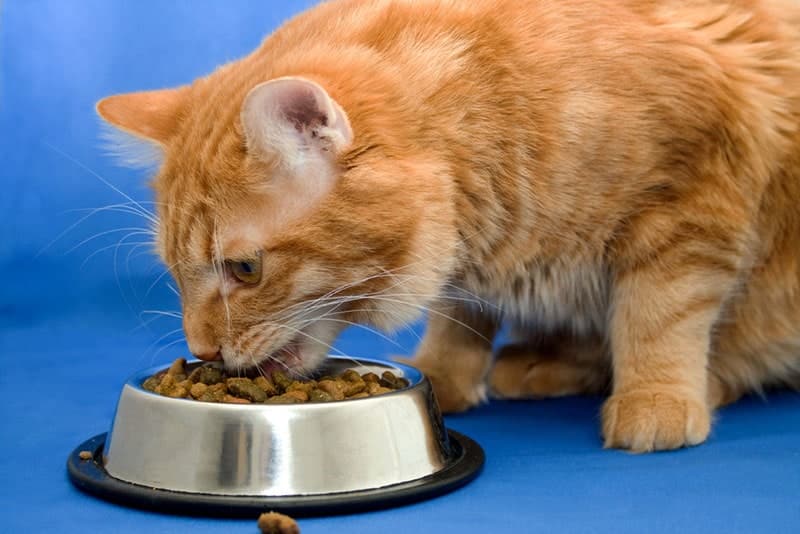
Cats are obligate carnivores, which means they need to consume animal proteins to stay healthy. Complete and balanced recipes produced by reputable brands are formulated to contain all the nutrients cats need, which are appropriate levels of protein, carbohydrates, fats, fatty acids, amino acids, vitamins, and minerals. In addition, clean water should be available at all times.
You can choose from dry or wet food or a combination of both. If your cat has a health condition, a vet may recommend a specific formula to support that area of health (for example, kidney care).
Common protein sources include chicken, turkey, fish, and beef, though some posh kitties enjoy formulas made with less common proteins like quail and venison. Tastes vary greatly, and if you’re a new cat parent, it might surprise you to realize just how picky some cats can be!
Need veterinary advice but can't get to the clinic? Catster recommends PangoVet, our online veterinary service. Talk to a vet online and get the answers and advice you need for your cat without having to leave your living room — all at an affordable price!


Can My Cat Eat Human Foods?
As long as your cat’s regular diet consists of a complete, balanced formula, there’s no reason why you can’t treat them now and again. Just ensure meat, fish, and eggs are cooked before being offered to your cat because raw meat could be unsafe. These should also be offered plain without any seasonings or heavy oils. Human foods cats can eat as occasional treats include:
- Cooked beef
- Cooked chicken
- Cooked turkey
- Lean deli meats
- Cooked fish
- Cooked eggs
- Steamed broccoli
- Carrots
- Peas
- Asparagus
- Cucumber
- Cantaloupe
- A small piece of cheese (emphasis on “small”—dairy is difficult to digest for many cats)
- Cooked brown rice
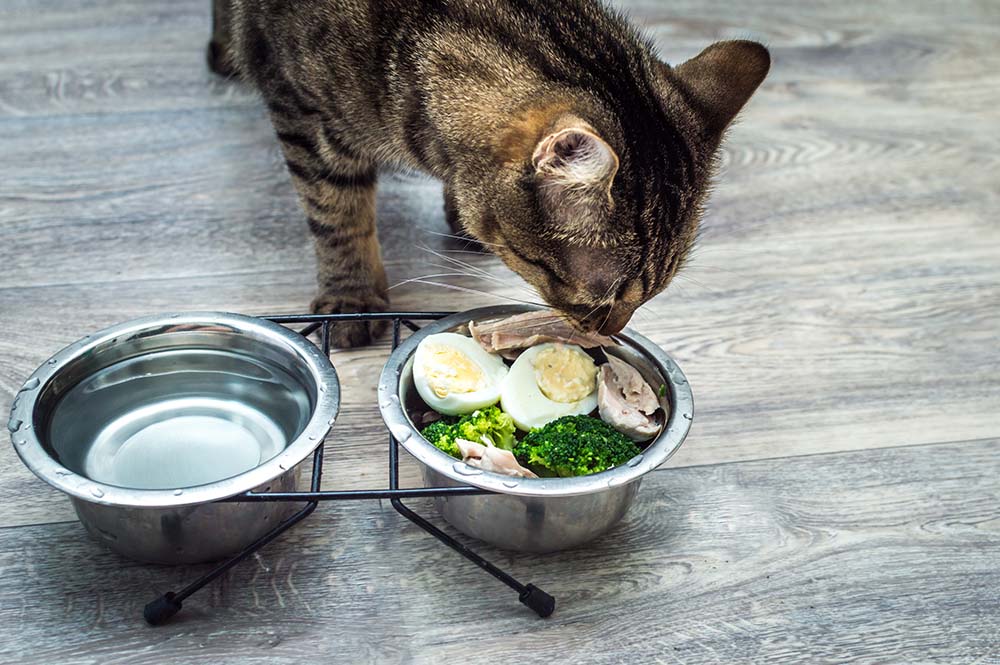
Unsafe Human Foods for Cats
It’s important to be cautious about the human foods you offer to your cat because some are toxic or just downright unhealthy for them. In the case of raw meats and fish, these could be carrying harmful bacteria. Unsafe human foods include but are not limited to:
- Alcohol
- Candy
- Xylitol (commonly found in candy and sugar-free gum)
- Chocolate
- Grapes
- Raisins
- Coffee
- Macadamia nuts
- Salty foods
- Sugary foods
- Raw meat
- Raw fish
- Bread dough

Final Thoughts
It’s best to steer clear of offering animal crackers and other salty or sugary snacks to your cat. If you’d like to treat your cat with some “human” foods now and again, it’s best to stick to plain, cooked meats and fish or safe veggies.
